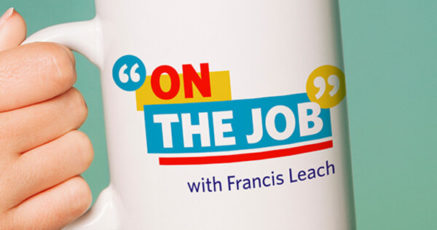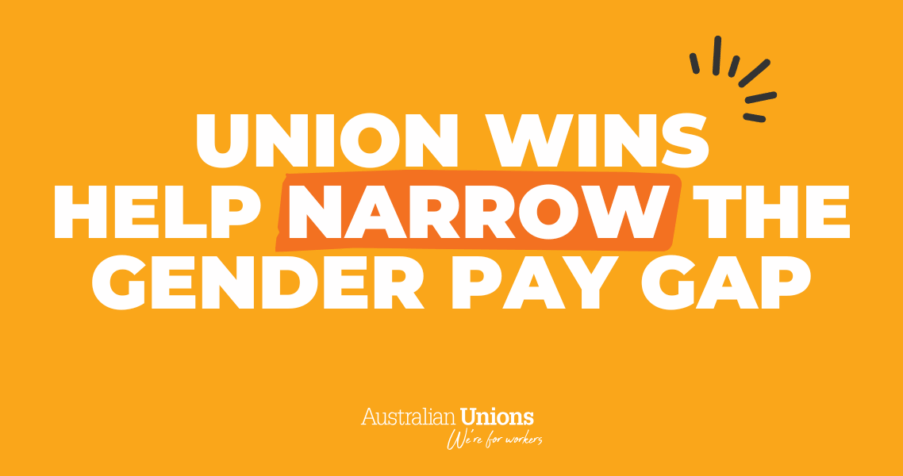Numbers we should never have to see
Every two days in Australia, a worker leaves home to do their job for the very last time.
It’s an appalling reality that a worker is killed on the job once every two days in this country. That is one of the shocking findings of a new ACTU report into the work, health and safety failings that have occurred under the Morrison Government.
The report finds that there has been a 32% increase in workplace fatalities and an 8% rise in workplace injuries from 2018 to 2020.
The Morrison Government has known about this crisis in Work Health and Safety (WHS) after WHS laws were reviewed in 2018. Three years later, none of the recommended reforms has been implemented.
ACTU Assistant Secretary Liam O’Brien tells On the Job the findings in the ‘Missing in Action’ report on WHS in Australian workplaces are alarming.
“It’s shocking, because for decades now, we’ve been reducing the rate of serious injury and death in workplaces. So not only is this an increase, but it’s a reversing of a downward trend in these sorts of issues,” he says.
“We’re talking about not just people being physically injured at work, obviously, mental health injuries are on the rise.”
“Serious diseases like silicosis and black lung diseases long thought eradicated in this country have come back in significant ways, with 200 workers a year now being estimated to be diagnosed with silicosis, all of which is really happening under the Coalition,” O’Brien says.
The national numbers are shocking. The report finds in Australia, a worker is killed every two days.
A further 5,000 people will die each year from diseases caused by their work and over 100,000 will be seriously injured and receive workers compensation.
Mental health injuries have risen to 9% of all injuries, but they are also growing in terms of severity. Return to work rates have climbed from 11.2 weeks (2000-01) to 26.6 weeks (2019-20).
Insecure work poses a real danger to workers
The growing prevalence of insecure work across the economy is a critical factor in the degrading health outcomes for Australian workers, according to the report.
Liam O’Brien says the link between insecure work and poor health outcomes in the workplace is undeniable.
I’m here in Central Queensland at the moment, talking to coal miners. They talk about the fact that 30 years ago, 95% of jobs in the coal industry were permanent. Today, there are more contractors and labour hire workers than there are permanent jobs. And that has a real impact on workers who would otherwise be speaking up about unsafe work practices, whose fear is that the minute that you talk up, you’re off the job.
Liam O’Brien
ACTU Assistant Secretary

The report outlines one such incident where silence and fear about flagging safety issues on a mine site led to tragedy.
In 2020, the Grosvenor Coal Mine in Central Queensland saw labour hire workers seriously injured following a methane explosion 400 metres underground. Despite their serious burns, and with the assistance of brave workmates who risked their own lives to retrieve them, the workers were able to be evacuated.
A Board of Inquiry was established to understand the cause of the explosion along with 27 previous high potential incidents involving dangerous exceedance of methane in the preceding 12 months.
The Board concluded that there was a perception among coal mine workers that a labour hire or contract worker who raises safety issues might jeopardise their employment at the mine.
This was an important factor in light of the six in 10 casual workers in Queensland mine who reported a year earlier that they couldn’t speak up about safety without fear of reprisal.
That is 50% higher than the results for the overall mine workforce. Nearly 9 in 10 mine workers also believed that casualisation affected workplace safety at their site.
“That inquiry found that the fear of losing your job was a real impediment to workers speaking up about health and safety,” O’Brien says.
“Insecure work is often associated with poor physical health, but also poor mental health and it’s a real issue when it comes to having good, safe work is making sure that we’ve got secure jobs.”






SHARE:
Morrison goes missing on worker safety